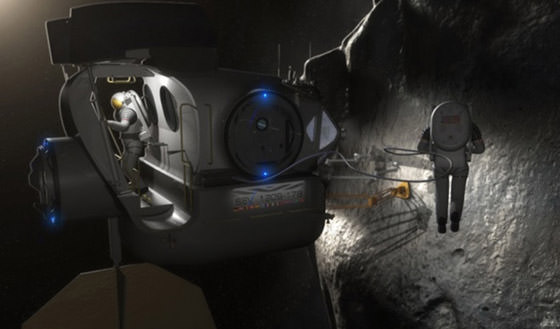

Hypothetical astronaut mission to an asteroid. Credit: NASA Human Exploration Framework Team
Fancy yourself an asteroid hunter? There’s $35,000 available in prizes for NASA’s new Asteroid Data Hunter contest series, which will be awarded to citizen scientists who develop algorithms that could be used to search for asteroids.
Here’s where you can apply for the contest, which opens March 17 and runs through August. And we have a few more details about this joint venture with Planetary Resources Inc. below.
“The Asteroid Data Hunter contest series challenges participants to develop significantly improved algorithms to identify asteroids in images captured by ground-based telescopes,” NASA stated. “The winning solution must increase the detection sensitivity, minimize the number of false positives, ignore imperfections in the data, and run effectively on all computer systems.”
We got a sharp reminder of the danger of asteroids to Earth in February 2013 when a meteor slammed into the atmosphere above Chelyabinsk, Russia, causing damage and hundreds of injuries. Meanwhile, NASA is working on a project to redirect an asteroid closer to Earth for astronauts to explore, a concept that has funding allocated in their 2015 budget request to Congress.
In November, NASA announced that Planetary Resources (the company best known for the “selfie” space telescope) is going to work on “crowdsourced software solutions” with NASA-funded data to make it easier to find asteroids and other near-Earth objects.
Some exoplanets have characteristics totally alien to our Solar System. Hot Jupiters are one such…
Stars form in Giant Molecular Clouds (GMCs), vast clouds of mostly hydrogen that can span…
Let’s dive into one of those cosmic curiosities that's bound to blow your mind: how…
The majority of the universe remains unmapped, but we have a potential window into it…
NASA engineers are pressing ahead with preparations for the Artemis II mission unless someone tells…
It’s not uncommon for space missions to be tested here on planet Earth. With the…